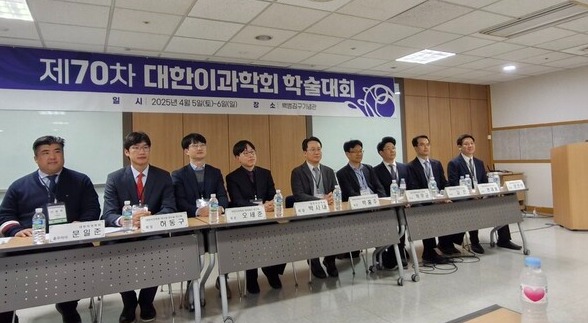
Experts say that cochlear implantation for hearing loss can reduce the risk of dementia and improve cognitive function, highlighting the need for active treatment to prevent cognitive decline in older adults.
The Korean Otological Society (KOS) held a press conference during its 70th Congress on Saturday, stating that as the number of people with age-related hearing loss increases in the super-aged society, studies indicate that cochlear implantation can help slow the progression of dementia.
Hearing loss is considered one of the most modifiable risk factors for dementia. Recent studies have shown that cochlear implantation can reduce the incidence of dementia by 8 percent, with more than 80 percent of patients experiencing cognitive improvement one year after the procedure.
The KOS recommends that individuals who suspect hearing loss consult a specialist promptly for accurate diagnosis and appropriate rehabilitation. The society also emphasized that older adults should not regard hearing loss as a normal part of aging, but instead pursue active treatment to help reduce the risk of cognitive decline.
However, the organization noted that not all patients experience the same level of cognitive improvement, and cochlear implantation does not completely prevent dementia. As a result, long-term follow-up studies are planned to provide scientific evidence on the effectiveness of cochlear implantation in dementia prevention.

In addition, the society’s Implantable Hearing Devices Research Committee will work to expand health insurance coverage for cochlear implants in cases of asymmetric hearing loss.
Currently, health insurance covers cochlear implantation only for adults aged 19 and older who have symmetrical sensorineural hearing loss of 70 dB HL or more in both ears and demonstrate hearing improvement of 50 percent or less while using hearing aids.
In other words, if one ear has a hearing level of 80 dB HL and the other 65 dB HL, the patient is not eligible for health insurance benefits for cochlear implantation—even if a cochlear implant is medically necessary—because the hearing loss is not symmetrical.
“Cochlear implantation is necessary for patients who have poor hearing in both ears, but the health insurance only supports one of the two ears, so as a result, the ear with poor hearing is left unattended,” said KOS President Park Hong-ju, who serves as a professor of otolaryngology at Asan Medical Center.
Park explained that although the society has repeatedly brought the issue to the government's attention, officials continue to demand supporting evidence. He noted that last year, the research society carried out a prospective study on the effectiveness of cochlear implantation in patients with asymmetric sensorineural hearing loss, involving eight hospitals, including Ajou University Hospital’s Department of Otolaryngology.
The results showed that when one ear has better hearing than 70 dB HL and the other worse, using a hearing aid in the better ear and a cochlear implant in the worse ear is effective in enhancing hearing function, improving sound localization, and alleviating tinnitus.
Based on this, the research society plans to push for the reimbursement of cochlear implantation for patients with asymmetric sensorineural hearing loss.
Related articles
- Seoul National University Bundang Hospital achieves 2,000 cochlear implant surgeries
- Brain health predicts cochlear implant success in elderly patients: study
- Adverse events of human implantable medical devices soar 152% in 5 years
- Korean researchers validate gene therapy potential for common hereditary hearing loss mutation
- 'Tinnitus causes evolve over time, requiring time-sensitive, personalized treatment'
- Big Ocean can’t hear their music -- but the world is listening
- Expert urges strict adherence to ‘1-3-6 principle’ for congenital hearing loss
- Only 12% of seniors over 65 with hearing impairment use hearing aids
- Antisense oligonucleotide therapy restores hearing in genetic deafness: Yonsei study

